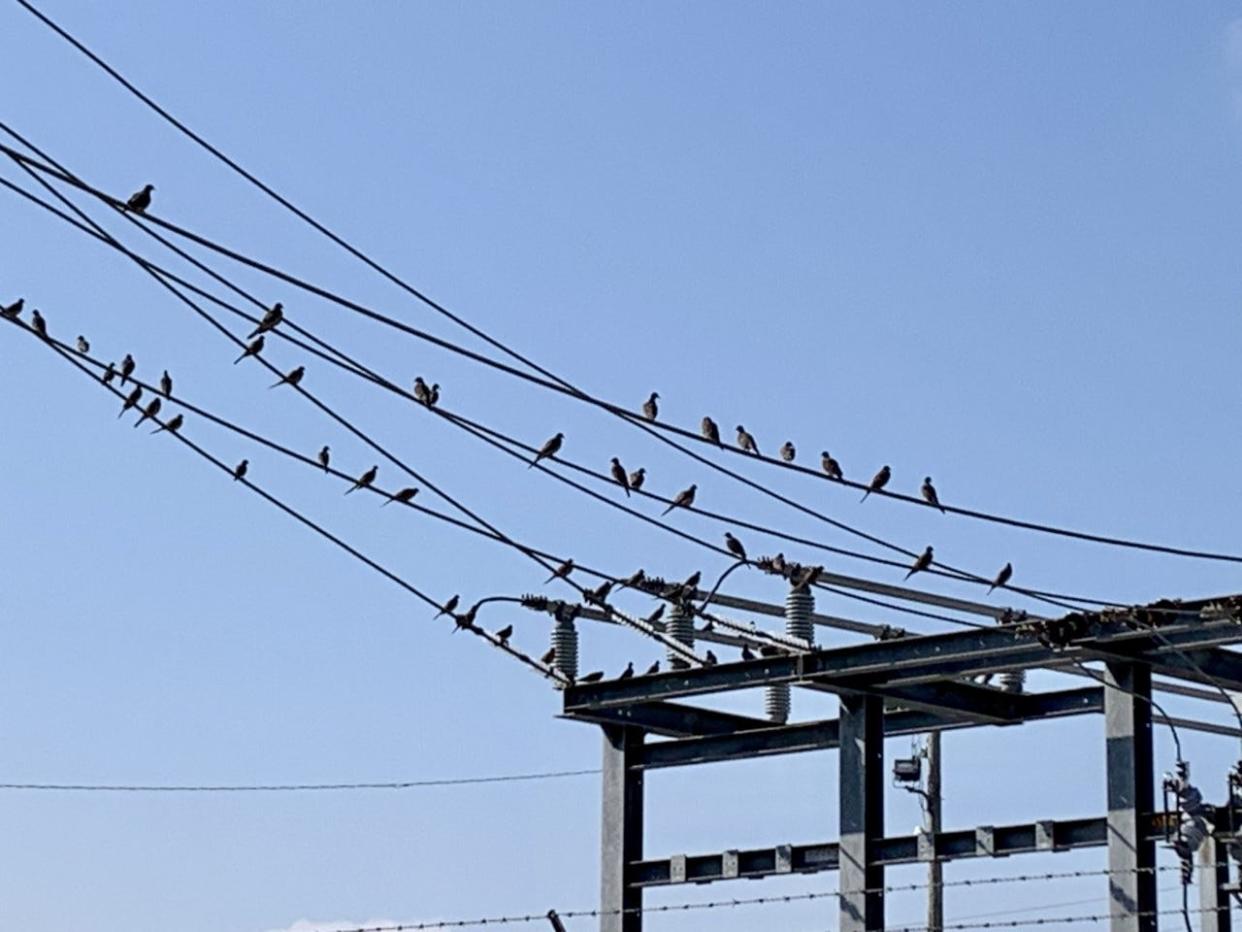Just Askin': Why do birds sit on power lines? Do they ever get shocked?

The Enquirer's Just Askin' series aims to answer the questions that no one seems to have an answer for, not even Google.
You've seen them. Clusters of wild birds always seem to be sitting together on electric power lines. In spring, power poles can also be popular spots for bird nests.
This week's Just Askin' dives into the different reasons birds are drawn to power lines and what it can mean for their health.
Question: Why do birds perch on power lines?
Answer: Two reasons.
Wild birds like crows, blue jays, mourning doves and pigeons often travel together in flocks. Power lines provide a convenient, open spot where they can sit together, Will Babb, staff writer for the Ohio Department of Natural Resources' Division of Wildlife, said.
This is especially true if other perching options, such as trees, aren't readily available. Birds that travel together often sit together, Babb said.
The other type of wild bird you may see sitting in a power line is there for a different reason. Raptors, such as eagles, hawks and falcons, may sit on power lines or power poles to get a good vantage point for potential prey. These carnivorous hunters usually travel and hunt alone.
How do the birds avoid being electrocuted?
Birds and other small animals that climb across power lines avoid electrocution by not touching the ground or a grounding source.
"The birds are not forming a connection between the power line and the ground, so they're not connecting the circuit," Babb said. "But if we were to touch a power line while standing on the ground, we'd complete the circuit, and bad things would happen."
Do birds ever get electrocuted by power lines?
Perching birds are not completely safe from shocks. According to a 2014 study by the National Institutes of Health, as many as 11.6 million birds are killed by electrocution each year, after accidentally touching a power line wire and grounding source at the same time.
Due to their large size, raptors are especially at risk. The U.S. Fish and Wildlife Services' National Forensics Laboratory analyzed 417 electrocuted raptors from 2000 to 2015, and found that nearly 80% killed were bald or golden eagles.
Have questions about Greater Cincinnati and Northern Kentucky? Send them to cinlocalnews@enquirer.com.
This article originally appeared on Cincinnati Enquirer: Here's why birds sit together on power lines

